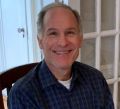Electroconvulsive therapy (ECT) is a highly effective treatment for major depression. However, it is underused due to stigma and concern over its side effects on memory. This webinar will describe the history of ECT including its many improvements over more than 80 years. This will be followed by a presentation of recent research that aims to make ECT more acceptable by minimizing its side effects on memory through better understanding of the mechanisms of its therapeutic effect on depression and its adverse effects on memory.
At the end of this presentation participants will:
- Be familiar with the history of ECT including its improvements over more than 80 years.
- Be aware of the therapeutic effect of ECT on major depression and the adverse effect of ECT on memory.
- Learn of new research into the mechanisms of the therapeutic and adverse effects of ECT that aims to make ECT more acceptable by minimizing its side effects on memory.
1 Hour CME Credit Available
Format: Webinar
Cost: Members: $25 | Non-members $50 | Student Members FREE
Speaker: William T. Regenold, MDCM

William T. Regenold, MDCM is a board certified general and geriatric psychiatrist. He is a Senior Research Physician and the Medical Director of the Noninvasive Neuromodulation Unit (NNU) in the Experimental Therapeutics and Pathophysiology Branch of the National Institute of Mental Health (NIMH). At the NIMH, he collaborates with a research team investigating electroconvulsive therapy and transcranial magnetic stimulation, primarily in the treatment of major depression. Dr. Regenold studied medicine at McGill University in Montreal. He trained in Medicine, Neurology and Psychiatry at the Johns Hopkins Bayview Medical Center in Baltimore and in Psychiatry and Old Age Psychiatry at the Johns Hopkins Hospital in Baltimore and the Maudsley Hospital in London. Prior to joining the NIMH, he was at the University of Maryland Department of Psychiatry where he was Director of the Division of Geriatric Psychiatry, the Adult Inpatient Service, and the Electroconvulsive Therapy Service. His research at the University of Maryland focused on mood disorder pathophysiology and electroconvulsive therapy.